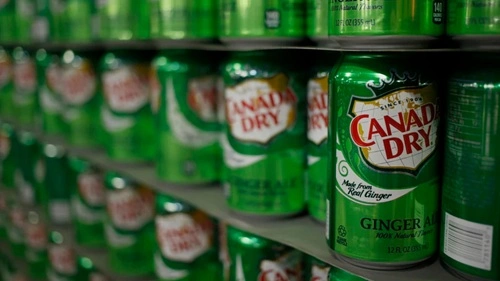The ginger ale class action lawsuit has made headlines in the United States in recent years. Customers have begun doubting the real ability of mainstream brands of ginger ales to really live up to their promises of being naturally flavored or using real ginger. This scandal has been subject to numerous litigation being filed against beverage giants like Keurig Dr Pepper which manufactures Schweppes and Canada Dry. These instances give significant issues regarding product labelling, consumer confidence and truth in advertisement.

Why the Ginger Ale Class Action Lawsuit Started
The litigation against ginger ale started when customers realized that some brands of ginger ales may not be as natural as they are being implied. According to one recent suit, brought in federal court in California, Schweppes and Canada Dry ginger ale products also have artificial ingredients yet they are being promoted as “naturally flavored.”
The plaintiff, Lillian Elliot, argued that she bought these drinks on the assumption that they were free of artificial flavoring. Nevertheless, laboratory analysis showed the existence of a synthetic substance of the petrochemicals, the DL-malic acid. This component is used to make the infamous “ginger ale” flavor, although it is considered an artificial flavor in both the state and federal law.
The case Elliot filed states that the company deceived consumers by not mentioning that it used artificial flavoring. She further asserts that she and other consumers paid more money since they thought that the beverages had a natural ginger taste.
What the Lawsuit Alleges
The complaint states that Keurig Dr Pepper Schweppes and Canada Dry products falsely advertise their flavoring with labels like “naturally flavored” and “natural ginger flavor.” The issue, according to the lawsuit, is that these drinks in fact use synthetic DL-malic acid to get the taste.
By the labeling law in the United States, when the characteristic flavor of a product like ginger is made by artificial ingredients or strengthened, the label must clearly mention that it is artificially flavored. The complaint claims that Schweppes and Canada Dry had not accomplished the same and the products were misbranded and could not be sold legally under both state and federal laws.
The plaintiff also claims that she would not have bought the beverages, or would have paid less, had she known that they were artificially flavored. The case is in the form of compensation of all consumers who have purchased these beverages in the United States since the year 2018.
A Look Back at Earlier Ginger Ale Lawsuits
It is not the first time a ginger ale lawsuit was listed in the news. A similar case was aimed at the products of Canada Dry ginger ale in 2012. The plaintiffs alleged that the drinks were being packaged falsely as containing real ginger, when they actually had none. The result of that lawsuit was a $1.25 million settlement in 2014.
Although the company did not acknowledge the wrongdoing, it had come into an agreement with the consumers who had purchased Canada Dry ginger ale or diet ginger ale. Moreover, the labels of the products continue to read “natural flavors” instead of stating its “ginger root extract”, and so many consumers will wonder what “natural flavor” really is in this situation.
What This Means for Consumers
The ginger ale class action lawsuit is an act that notes an increasing desire toward food and beverage labeling. American consumers want to know what they are drinking and demand integrity in large brands. The vague words such as “natural flavor” could create a misunderstanding and mislead the buyers that the product is even healthier and more natural than it initially is.
For consumers, this incident is a valuable lesson on how to be careful when reading ingredient labels. Considering that you wish that beverages be prepared using “real ginger”, then you should check the brands that have the ingredients such as “ginger root extract”, or fresh ginger explicitly indicated on them. High-end or artisan ginger ales are also likely to be made using actual ginger and may be more spicy and biting than mass-produced bottling.
The Bigger Picture: Truth in Labeling
The ginger ale class action case is also an indication of a wider problem in the U.S. food and beverage market. Many companies have faced lawsuits for misleading flavor claims ranging from “fruit-flavored” drinks without actual fruit to “vanilla” products with no real vanilla extract. Such instances demonstrate the importance of wording in creating significant legal problems.
Federal and state laws demand the accurate description of the products of the brands. In case artificial ingredients are applied by companies, they are supposed to indicate it. Lack of this may lead to legal suits, penalties, and reputation losses among consumers.
Current Status and What’s Next
The case against Keurig Dr Pepper is still in action in the federal court of California. It might result, depending on the results, in a second, significant settlement or in even sterner labeling requirements of flavored beverages. The court can create new guidelines on the application of the allegation of such a drink as “natural flavor“ in case it concludes that the corporation has broken the laws of consumer protection.
Conclusion
The ginger ale class action lawsuit is a wake-up call to all consumers to be smarter and more conscious about all your favorite beverages. The labels in marketing can be convincing but in the list of ingredients the story is seen. With the increasing number of consumers seeking transparency, there is a possibility in the near future, whereby the beverage companies will be under pressure to explicitly identify the natural or artificially flavored label to their products.
In the end, the ginger ale is not the focus of this legal battle, but the issue of truth in advertising, consumer rights, and the fact that the rating has increased to an extreme where companies need to be frank with what they are putting into their products.